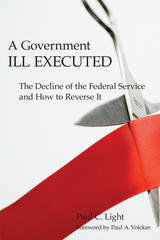
Researchers in child development often study children in isolation--apart from the environmental influences that shape, nurture, or harm them. In Children of Social Worlds, leading social scientists show how much is lost by this approach. Their underlying assumption is that children's psychological development can be understood only in the context of the social worlds in which they grow up and that the disciplinary boundaries of traditional psychology must be expanded. This book offers insights from scholars in a variety of disciplines--anthropology, education, linguistics, economics, medicine, and law, in addition to psychology. The result is a wide-angle perspective on child development based on some of the best research in the field.
The authors look particularly at broad trends and patterns, addressing such issues as the effect of institutions on family life, the changing roles of parents, cross-generational effects on development, the status of children in the legal system, schooling and learning, gender differences, the acquisition of communication skills, and the psychological impact of the nuclear threat. Chapters on cultural and historical definitions of the family add depth to their argument. Included, too, are discussions of emotional development and psychoanalytic theory, topics that are receiving increasing attention. The authors also reflect on the directions that research is likely to take in the future.
This well-balanced, closely integrated volume is full of innovative ideas and is written in a style that will be accessible to both specialists and students. As an incisive and informed evaluation of the field, it is sure to become an essential resource for psychologists, social workers, psychotherapists, social policy analysts--all who are concerned with human development in its social context.

The federal government is having increasing difficulty faithfully executing the laws, which is what Alexander Hamilton called “the true test” of a good government. This book diagnoses the symptoms, explains their general causes, and proposes ways to improve the effectiveness of the federal government. Employing Hamilton’s seven measures of an energetic federal service, Paul Light shows how the government is wanting in each measure.
After assessing the federal report card, Light offers a comprehensive agenda for reform, including new laws limiting the number of political appointees, reducing the layers of government management, reducing the size of government as its Baby Boom employees retire, revitalizing the federal career, and reducing the heavy outsourcing of federal work. Although there are many ways to fix each of the seven problems with government, only a comprehensive agenda will bring the kind of reform needed to reverse the overall erosion of the capacity to faithfully execute all the laws.
READERS
Browse our collection.
PUBLISHERS
See BiblioVault's publisher services.
STUDENT SERVICES
Files for college accessibility offices.
UChicago Accessibility Resources
home | accessibility | search | about | contact us
BiblioVault ® 2001 - 2024
The University of Chicago Press









